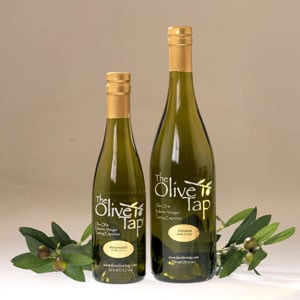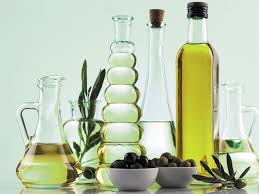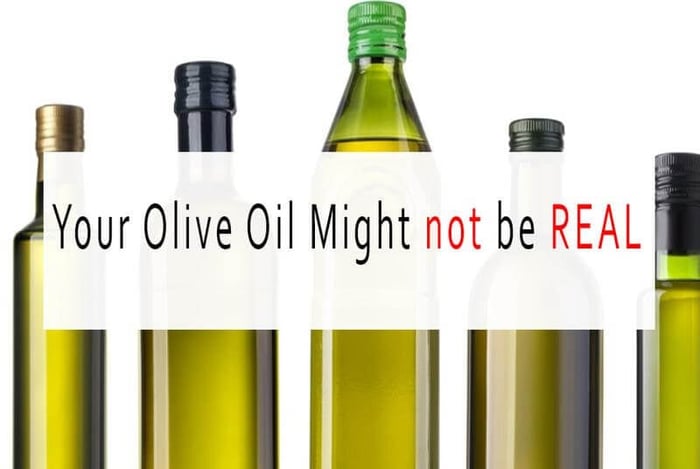Our Blog

Mistakes to Avoid When Storing Olive Oil
We have authored a number of our blog articles on the importance of buying quality olive oil, however, it is equally important to understand the mistakes to avoid when storing olive oil.
There are many common mistakes when storing olive oil including using clear dispensing bottles, keeping it in warm places, not sealing the bottle properly and refrigerating it. Our article will also reveal humidity and condensation factors along with the importance of understanding expiration dates on the oil’s quality.
Our goal is to help our our loyal customers and readers understand how to properly store olive oil to keep it fresh and flavorful, especially when you "invest" in quality olive oil.
The Four Enemies of Olive Oil
There are four key enemies of olive oil. Light, Temperature, Air and Time. It is important to understand these enemies and do your best to keep the enemies away from your quality olive oil. Each of these enemies will impact not only the freshness and longevity of your oil but also degrade the taste, color and most importantly the health benefits of the olive oil.
Storing Olive Oil in Clear Glass Bottles
The Enemy of Light. Olive oil is beautiful with its golden yellow to rich green colors so it is hard to resist storing it in decorative clear bottles on the counter to let its color shine. Unfortunately, light is one of the key enemies impacting the freshness and longevity of the olive oil. More specifically, light can cause substantial loss of antioxidants, therefore, reducing the health benefits. It's best to keep your olive oil in the original dark green bottles from The Olive Tap or containers which will keep the light out.
 Clear Bottles, Open Bottles All a Mistake!
Clear Bottles, Open Bottles All a Mistake!Common Mistakes in Storing Olive Oil in Warm or Humid Areas
The Enemy of Temperature: Heat and Humidity. Probably one of the worst of the enemies, heat, can cause the olive oil's molecules to decompose (oxidation), which will lead to loss in both taste, smell and quality. Olive oil is best stored in a cool, dark and dry place such as a pantry or cabinet away from any heat sources such as a stove, oven, dishwasher etc. Also, if you are storing olive oil in metal tins, be cautious. Metal conducts heat so it will become even more warm near a stove or in direct sunlight than if stored in a dark glass bottle in the cabinet.
With humidity, often comes heat. In humid conditions, condensation can also occur with the risk of water contaminating the olive oil. Again, remember a cool, dry and dark place.
Storing Olive Oil in the Fridge: Why It's a Bad Idea
The Enemy of Temperature: Cold and Condensation. Olive oil will solidify when stored in the refrigerator or extremely cold temperatures. When olive oil is in its solidified state, it will be difficult to use until it gets "back to room temperature", which can often take some time. Also, if you need to use the oil before it is "defrosted", be smart. Opening it early (while defrosting), will increase the risk of condensation (water) entering and contaminating the bottle. Unfortunately, the cold temperature will also diminish the fresh green aroma.
Leaving the Bottle Open: The Impact on Olive Oil Quality
The Enemy of Air. Olive oil, when exposure to air can increase the rate of oxidization and negatively impact the longevity of olive oil. Oxidization also causes the oil's beneficial antioxidants to breakdown, making it less nutritious. Here's a few Tap's Tips to reduce the influence of air on your olive oil.
- Immediately Seal the Bottle After Use - Reseal with the original cap or purchase a convenient Dripless Pour Spout.
- Keep the Olive Oil in Smaller Bottles for Daily Use - Keep the surface area of exposed olive oil lower by using smaller bottles.
- Store in Tightly Sealed Containers - If you are using decorative dispensers, ensure the seal is tight to reduce air flow.
Overlooking the Expiration Date When Storing Olive Oil
The Enemy of Time. From the moment the olive is pressed, time becomes the enemy. Producers work hard to press and seal the olive oil quickly with all of the proper storage techniques.
Quality olive oil retailers work directly with artisan producers to receive the freshly pressed olive oil as fast a possible and determine an appropriate expiration date based on each specific varietal. It is important to look for expiration dates and if you do not see a date, be cautious. You might just be purchasing "expired" or old oil.
At gourmet olive oil retailers such as The Olive Tap, the staff often knows the general month of harvest. Considering the time from pressing to arrival, The Olive Tap recommends using both extra virgin olive oils and flavored oils within 12 months of purchase.
Buying Olive Oil in Large Quantities: How It Affects Storage
It's also tempting to buy more olive oil than is truly needed, especially when quality olive oil retailers have promotional sales with valuable savings. At The Olive Tap, we recommend to our customers to not purchase more olive oil than what you expect to use within 6 months.
We like to purchase a variety of flavor profiles for the ultimate in flexibility in the kitchen, purchasing a light, medium and robust olive oil in 375 ml. bottles. If you have just one-go-to olive oil, a 750 ml. bottle does offer savings as long as you feel it will be used within 6 months.
Very large, bulk containers or bottles, can also be a concern as the olive oil is used. The wide or larger surface area is exposed to more air within the container, inviting in The Enemy of Air. Air again degrades the freshness and health benefits of the olive oil. In addition, it may be hard to consume this large bulk container within the recommended 6 months for freshness.
Storing Olive Oil Near Strong Odors
Especially if your olive oil is not sealed properly, olive oil can absorb odors from its surroundings. It is highly recommended to store oil away from strong spices or foods (onions, garlic) to maintain the integrity of its original flavor. While rather obvious, also keep your olive oil away from and strong scented cleaning products or items.
Olive Oil Storage Summary
You should now be well informed on the key mistakes to avoid when storing olive oil.
- Store it in a cool, dark, dry area away from heat and light with friendly, "non-odorous neighbors".
- Buy what you will use in 6 months in appropriately sized containers.
- Be informed and aware of expiration dates.
- Check it out if you are unsure of its freshness.
- Check the expiration date and/or harvest date, if available.
- Smell it! if it smells similar to stale nuts or crayons, it's more than likely rancid.
- Taste it. We all have all used stale oil in our cooking or baking at some point in time. The taste will be distinct, taste off and can often ruin the overall taste of the dish.
- Remember, if it is rancid, it can be used for other applications. Moisturizer for the skin, body scrubs, clean and/or moisturize leather products and more. See our article on Non-Culinary Applications.
We hope you will find it easy to find a safe home to keep your quality olive oil fresh and nutritious in your home.



